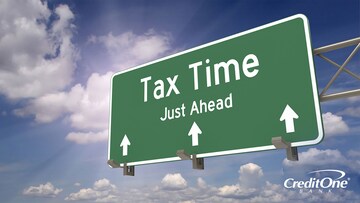
You’ve probably heard about the Tax Cuts and Jobs Act passed in 2018, but you may not have known this is the biggest tax reform in the last 30 years. The law covers a lot of ground, but here are some of the more notable changes that could affect you.
Lower Tax Brackets
Generally, you pay a higher percentage in taxes as your income goes up. Previously, the rate was 10% of the first $9,325 of taxable income, then 15% up to $37,950 and 25% after that. (The limits were different for married couples, and there are higher brackets for very high earners).
Now the brackets are lower. Instead of 10%, 15%, and 25%, you’ll pay 10%, 12%, and 22%. In addition, the dollar amounts defining the brackets are a bit higher, which means more income will be taxed at the lower rates.
Doubled Standard Deduction
Tax deductions are income you don’t have to pay taxes on. Your two options are to itemize, where you add up expenses like mortgage interest and charitable donations to see what your total deduction is, or to take the standard deduction, a fixed amount.
This tax reform bill doubled the standard deduction to $12,000 for individuals, $18,000 for heads of household, or $24,000 for married couples filing jointly. According to the Internal Revenue Service, about 30% of those who file taxes itemize their deductions. With the larger standard deductions, it’s estimated by the nonpartisan Tax Policy Center that this percentage could fall to only 10%. This means mortgage interest won’t affect most people’s tax returns this year.
Doubled Child Credits
Here’s some good news for parents. The Child Tax Credit doubled to up to $2,000 per child under the age of 17. As long as you earn at least $2,500, $1,400 of the credit is refundable. That means if your tax credits are higher than the taxes you owe, you’ll get some of the money deposited into your account.
A New Deduction for Side Hustles
The new tax bill has good news for people working a side hustle. Pass-through income from an LLC will get an automatic 20% deduction. This is applied after all of the regular business deductions (home office deduction, supplies, etc.), which makes the picture even sweeter. Note that this does not apply to W-2 income (regular wages); only to income from a 1099 or LLC.
No More Deduction for Unreimbursed Job Expenses
This tax bill is not all good news for everyone. If you have to travel a lot for work or pay for things like a cell phone, conferences, or supplies out of pocket, you used to be able to deduct some of those expenses from your taxes. One unfortunate side to the new tax laws is that this deduction has gone away—at least for W-2 employees. Business owners can still claim all the expenses they previously could. And those of you who are teachers still get tax breaks for classroom supplies.
Tax season can be a time of year to look forward to if you’re anticipating a refund. Or to dread, if you’re going to have to make a big payment to the government. Either way, it’s a good idea to familiarize yourself with the new tax laws—or make sure your tax preparer is up to speed—in order to avoid any surprises.
PS: NEED TO FILE LATE?
Did tax season sneak up on you this year? You can go to IRS.gov and click the “Free File” link. It takes only a few minutes to fill out Form 4868, which automatically gives you until October 15 to file. Just know that, even if you’re granted an extension, if you owe the government taxes, you’re still required to pay by the April filing deadline or you could get hit with penalties and interest charges.
Robert Lillegard started his wordsmithing career as a national food and travel writer for magazines like The New York Times, Outside, Cooking Light, and Midwest Living. As a contributor to Credit One Central, Robert has leveraged his expertise in taxes, budgeting, and building credit to create engaging content. When he’s not crafting a story or blog post, Robert spends his free time obsessing over producing the perfect loaf of bread at a Duluth-based artisanal bakery he co-owns.




